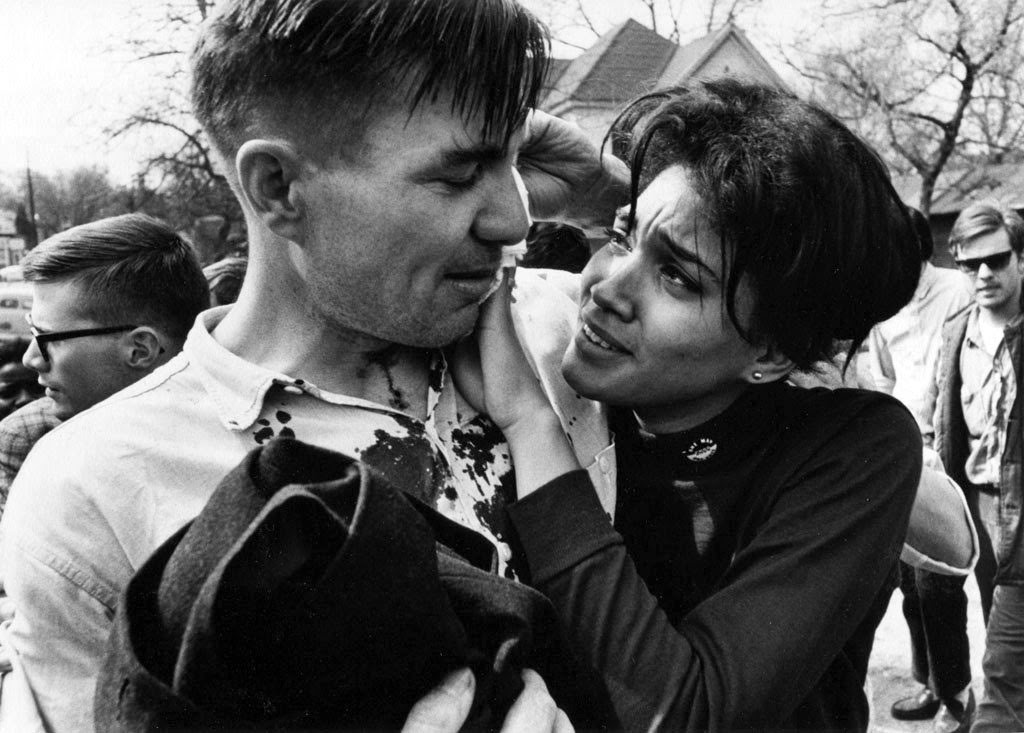In the summer of 1947, poet Galway Kinnell (Feb. 1, 1927 – Oct. 28, 2014) spent a brief two-week period at Black Mountain College. He arrived by way of Princeton, with plans to work on his thesis. During his stay, the poet witnessed the reality of the segregated South. The experience left a lasting impression. In a 2001 interview with Daniela Gioseffi, Kinnell spoke of his time in Western North Carolina:
In my childhood in Pawtucket, Rhode Island, I wasn’t really aware of the prevalence of segregation because, though practically everybody was an immigrant, they were almost all from Europe. There were no immigrants from the black populations of the South or the Caribbean in my school. In my childhood I saw very few people of color. In my grammar school, there was one Jewish person. I learned about segregation later, when I traveled about the country and spent time in the South. But when I actually came to discover it, I found it shocking and horrifying. I think when I first became aware of it, I was at Black Mountain College in North Carolina, near Tennessee. I went down there for a summer on my GI bill. And, there was a black writer who came to visit, and I went into town with him. He had to buy a train ticket and I went to the train station with him. Well, the amount of fuss produced by a white and a black man walking together was obvious. He grew worried, but I didn’t, because I just didn’t realize that it was a dangerous thing for us to walk together talking as friends. Afterwards, I talked with him about it and he conveyed the experiences of his life that made him … wary of the situation. Then, I came to know other black people, and heard more of their experiences and read more and more about the history of it all, and realized that it wasn’t a phenomenon confined to just the Southern states, but that it was pretty much a national phenomenon. Certainly New York was a segregated city then, and still is to a significant degree.
…
And then, not long after that, I was living in France when the Civil Rights Movement became news, and reading the Paris edition of The Herald Tribune, I read about the Freedom Riders, and thought, “My God, at last something is being done!” As soon as I got back, I sought out CORE — which I’d heard or read was going to do a voter registration drive. I realized that here was an opportunity to do something instead of merely stewing about it. As soon as I got back to this country, I signed up with CORE, The Congress of Racial Equality, and went to Louisiana for a summer of voter registration and a fall of attempting integration in certain businesses in Hammond, Louisiana.
On Wednesday, Dec. 28 at 7 p.m., The Block off Biltmore will screen a 15-minute documentary titled: Hell’s Hot Breath: Galway Kinnell at Black Mountain. The film was made by Asheville poet and historian Laura Hope-Gilland is part of the NC Pulitzer Campfire project of the North Carolina Humanities Council.
“What I aim to do in telling this story is track how bearing witness leads to social action,” Hope-Gill says. She adds, “How long can a person stay on the sidelines after they’ve been thrust into the center of reality? I don’t think very long.”
Below is a trailer of the film.




“I learned about segregation later, when I traveled about the country and spent time in the South. ”
Actually, it sounds like the lily white homeboy learned about DIVERSITY when he moved to the South.
btw, I once worked with a black guy (from Delaware) who said he liked it better under segregation. Blacks had their culture with their cool community gatherings and whites had theirs. I’m serious. That’s what he said. I really liked the guy. We got along very well.
So far, according to your archived posts, you’ve touched souls with a female black minority HR manager who claimed white men are the most discriminated against group in the country, and now a black dude who preferred society under segregation.
I’m still waiting to meet your Canadian girlfriend.
I sincerely look forward to reading great grandpapaw Snowflake’s diary when slaves thanked Mr. Charlie for their excellent lives.
You see what you want to see. I never said she was black. She was lily white with just enough Japanese to be considered a minority..
Your archived posts suggest something quite different, but it’s your lie- tell it the way you will.
Why don’t you post the archived post so that we can all tell if you’re lying or not?
“Well, the amount of fuss produced by a white and a black man walking together was obvious. He grew worried, but I didn’t, because I just didn’t realize that it was a dangerous thing for us to walk together talking as friends. ”
I had the same experience in a BLACK neighborhood with a black friend. BOOYAH!
Think that had anything to do with slavery, Reconstruction, Jim Crow laws, de facto laws to disenfranchise, and lynchings?
Me neither.
You don’t have any black friends, btw. If you have to pay them to appear in public with you, well…